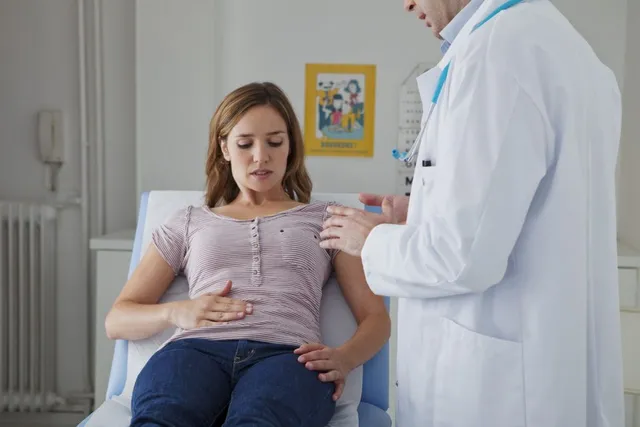If you have a gastroenterology appointment coming up, you might wonder if grabbing a quick meal beforehand is a smart idea — or a serious mistake. The answer isn’t always straightforward, and making the wrong choice could impact your test results. Before you take that bite, discover what every patient needs to know to be fully prepared for their gastroenterology appointment.
Consult a gastroenterologist in Brooklyn for professional advice.

What Should I Avoid Eating Before Seeing a Gastroenterologist?
What you should avoid eating before your gastroenterology appointment depends primarily on the type of visit. If you’re going in for a routine consultation, there are usually no dietary restrictions, and you can eat as you normally would. These visits often focus on discussing symptoms, medical history, and planning future steps, so food intake beforehand generally doesn’t pose a problem.
Nevertheless, if your appointment includes diagnostic procedures like an endoscopy or colonoscopy, dietary guidelines become much more important. In these cases, fasting is often required. Eating prior to such procedures can interfere with the results and may increase certain risks, making preparation a critical part of the process.
To ensure accurate results and a safe procedure, it’s essential to carefully follow the specific instructions provided by your gastroenterologist. These guidelines are tailored to the type of test you’re undergoing and should not be overlooked.
Identify the Type of Appointment
Comprehending the nature of your gastroenterology appointment is an important first step in preparing properly. Determining whether your visit is a general consultation or involves a specific procedure can help you know what to expect and how to get ready.
Routine check-ups typically do not require any changes to your regular diet. You can usually eat as you normally would before a general consultation, where the focus is often on discussing your symptoms, health history, or future care plans.
Nonetheless, if your appointment includes a diagnostic procedure such as an endoscopy or colonoscopy, different preparations are necessary. These procedures often require fasting or following a special diet ahead of time to ensure accurate results and reduce potential risks.
To avoid any confusion, it’s important to clarify the nature of your appointment with your healthcare provider. This will help you follow the right preparation steps and arrive at your visit fully ready.
Check the Doctor’s Instructions
Following the specific guidelines given by your gastroenterologist is crucial for a successful appointment or procedure. These instructions are carefully tailored to meet your individual health needs and to align with the specific requirements of any diagnostic tests or treatments you may undergo.
If anything is unclear or you have questions about the preparation steps, do not hesitate to contact your doctor’s office. Getting clarification ensures you are fully prepared and helps avoid any issues that could affect the accuracy or safety of your appointment.
General Consultations Usually Allow Eating
If your appointment is a standard consultation with no procedures scheduled, you can typically eat as you normally would beforehand. These visits are usually focused on discussing your symptoms, medical history, or treatment options, so fasting or dietary restrictions are not required in most cases.
That said, it’s a good idea to be mindful of what you eat before the appointment. Heavy, spicy, or fatty meals can sometimes cause temporary digestive discomfort, which may influence how you’re feeling during the visit and potentially affect the assessment.
To help ensure a more accurate evaluation, consider choosing light, easily digestible foods ahead of your consultation. This small step can make it easier to discuss your symptoms clearly and avoid confusion caused by recent food-related discomfort.
Procedures Often Require Fasting
When your gastroenterology appointment involves a diagnostic procedure, fasting is usually necessary. This preparation helps ensure the procedure can be performed safely and that the results are accurate. Eating or drinking too close to the procedure time can interfere with visibility and increase potential risks.
Two common procedures and their fasting requirements:
- Endoscopy: You should avoid eating solid foods for at least 6 to 8 hours before the procedure. Additionally, it’s important to stop drinking liquids at least 4 hours prior. This helps keep the stomach clear and allows for better visibility during the examination.
- Colonoscopy: Preparation generally includes following a clear liquid diet the day before the procedure. You will also need to stop consuming liquids several hours beforehand, based on your doctor’s specific instructions. This ensures that the colon is properly cleansed for accurate results.
Always follow the exact fasting guidelines provided to you. These instructions are tailored to your procedure and are critical for both safety and effectiveness.
Avoid Certain Foods If Advised
Even when fasting isn’t required for your appointment, your doctor might still recommend avoiding specific foods. Certain items can irritate the digestive system or interfere with the accuracy of diagnostic tests, even during routine consultations or non-invasive evaluations.
Commonly advised foods and beverages to avoid:
- Fatty or fried foods: These can cause bloating and general discomfort, which may complicate the evaluation of your symptoms.
- High-fiber foods: Foods rich in fiber may lead to excess gas and interfere with certain diagnostic assessments.
- Spicy foods: These can irritate the digestive tract, potentially masking or mimicking symptoms.
- Caffeinated beverages: Caffeine can influence gastrointestinal motility, which may affect how your digestive system functions during evaluation.
- Alcohol: Alcohol may irritate the stomach lining and alter how symptoms present.
If your doctor advises avoiding any of these items, it’s important to follow that guidance carefully. Doing so can help ensure your appointment is as accurate and effective as possible.
Sources.
Chan, W. K., Saravanan, A., Manikam, J., Goh, K. L., & Mahadeva, S. (2011). Appointment waiting times and education level influence the quality of bowel preparation in adult patients undergoing colonoscopy. BMC gastroenterology, 11, 1-9.
U.S. National Library of Medicine. (2024, July 24). Clear liquid diet. MedlinePlus.

